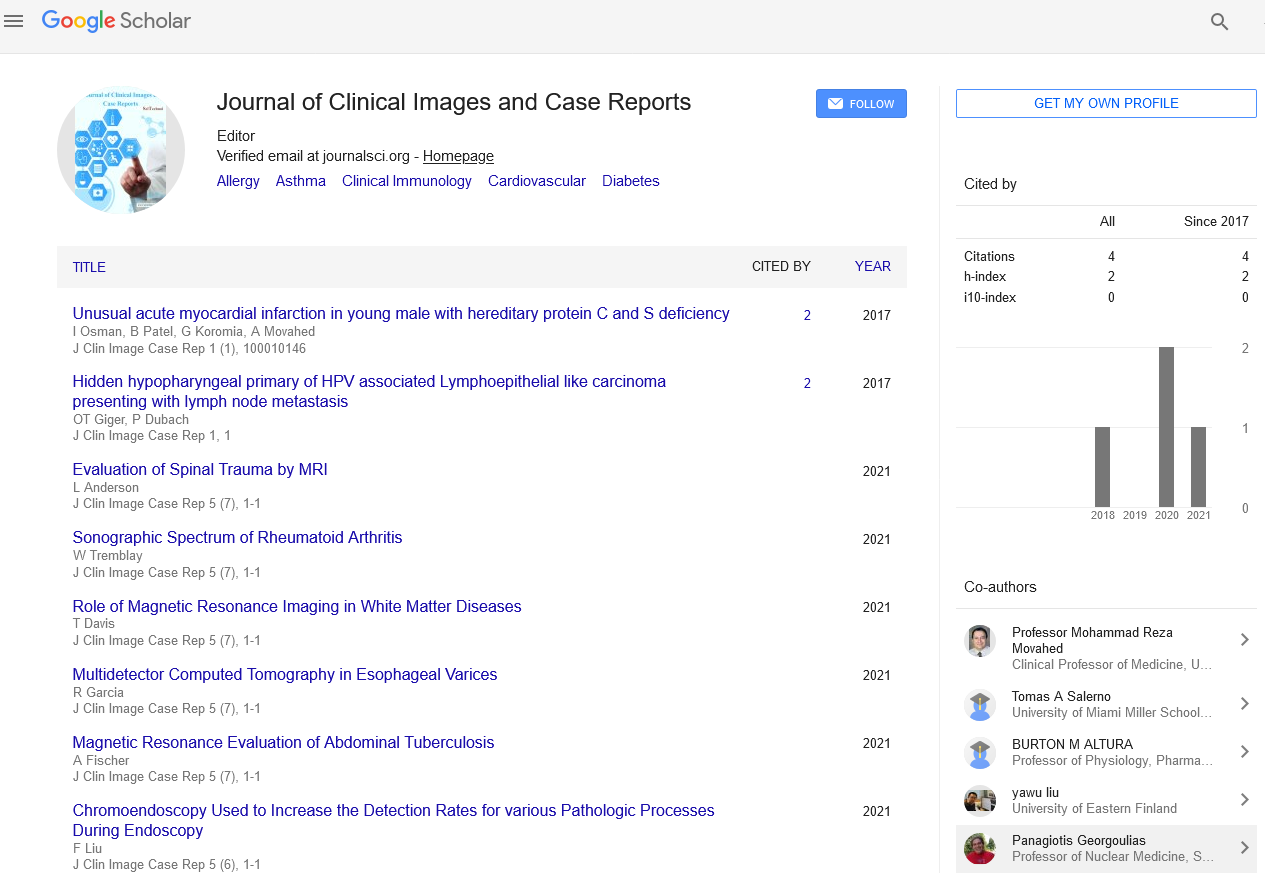Perspective, J Clin Image Case Rep Vol: 8 Issue: 6
The Role of Digestive Enzymes in Efficient Nutrient Utilization
Furkan Emin*
1Department of Nutrition, University of Szeged, Szeged, Hungary
*Corresponding Author: Furkan Emin,
Department of Nutrition, University of
Szeged, Szeged, Hungary
E-mail: eminfurkan@gmail.com
Received date: 26 November, 2024, Manuscript No. CICR-24-156416;
Editor assigned date: 28 November, 2024, PreQC No. CICR-24-156416 (PQ);
Reviewed date: 12 December, 2024, QC No. CICR-24-156416;
Revised date: 19 December, 2024, Manuscript No. CICR-24-156416 (R);
Published date: 26 December, 2024, DOI: 10.4172/CICR.1000335.
Citation: Emin F (2024) The Role of Digestive Enzymes in Efficient Nutrient Utilization. J Clin Image Case Rep 8:6.
Description
Digestive enzymes play a difficult role in the breakdown and absorption of nutrients, making them essential for efficient nutrient utilization in the body. These enzymes are produced by various glands and organs, including the salivary glands, stomach, pancreas and small intestine. Each enzyme is specialized to break down specific types of nutrients carbohydrates, proteins and fats into their component molecules, which can then be absorbed into the bloodstream and used by cells for energy, growth and repair.
One of the most important digestive enzymes is amylase, which is responsible for breaking down carbohydrates into simple sugars like glucose. Amylase begins its work in the mouth, where it is secreted by the salivary glands to start the process of starch digestion. Once the food reaches the stomach and small intestine, pancreatic amylase continues the breakdown of carbohydrates into simpler sugars that can be absorbed into the bloodstream.
Proteins, another essential nutrient, are broken down by proteases, enzymes that target peptide bonds in protein molecules. Pepsin, the primary protease in the stomach, begins the process of protein digestion by breaking proteins into smaller peptides. In the small intestine, pancreatic enzymes like trypsin and chymotrypsin further break down peptides into individual amino acids, which are absorbed by the intestinal cells and transported to other parts of the body for use in building tissues and enzymes.
Fats are digested by lipases, enzymes that break down triglycerides into glycerol and fatty acids. Lipase is secreted by the pancreas and works in the small intestine, where bile from the liver helps emulsify fats, making them easier for lipase to digest. Once broken down, fatty acids and glycerol are absorbed into the bloodstream and transported to cells, where they are used for energy or stored for later use.
The efficiency of digestion is influenced by several factors, including the amount and activity of digestive enzymes, the composition of the diet and the overall health of the digestive system. When digestive enzymes are insufficient or not functioning properly, nutrient absorption can be compromised, leading to deficiencies and digestive disorders. Conditions like pancreatic insufficiency, celiac disease and lactose intolerance can all interfere with enzyme production or function, making it difficult for the body to break down and absorb nutrients properly.
In addition to these natural digestive enzymes, there are also enzyme supplements available that can aid in digestion. These supplements are often used by individuals who have enzyme deficiencies or specific digestive conditions that hinder nutrient absorption. While enzyme supplements can be helpful in managing symptoms, they are not a cure for underlying conditions and should be used in conjunction with proper medical care and a balanced diet. Ultimately, digestive enzymes are vital for the efficient utilization of nutrients. They ensure that carbohydrates, proteins and fats are properly broken down into their component parts, allowing the body to absorb the necessary nutrients for health. Maintaining optimal enzyme function through a balanced diet, adequate hydration and the management of digestive health is essential for overall well-being and effective nutrient utilization.
 Spanish
Spanish  Chinese
Chinese  Russian
Russian  German
German  French
French  Japanese
Japanese  Portuguese
Portuguese  Hindi
Hindi 